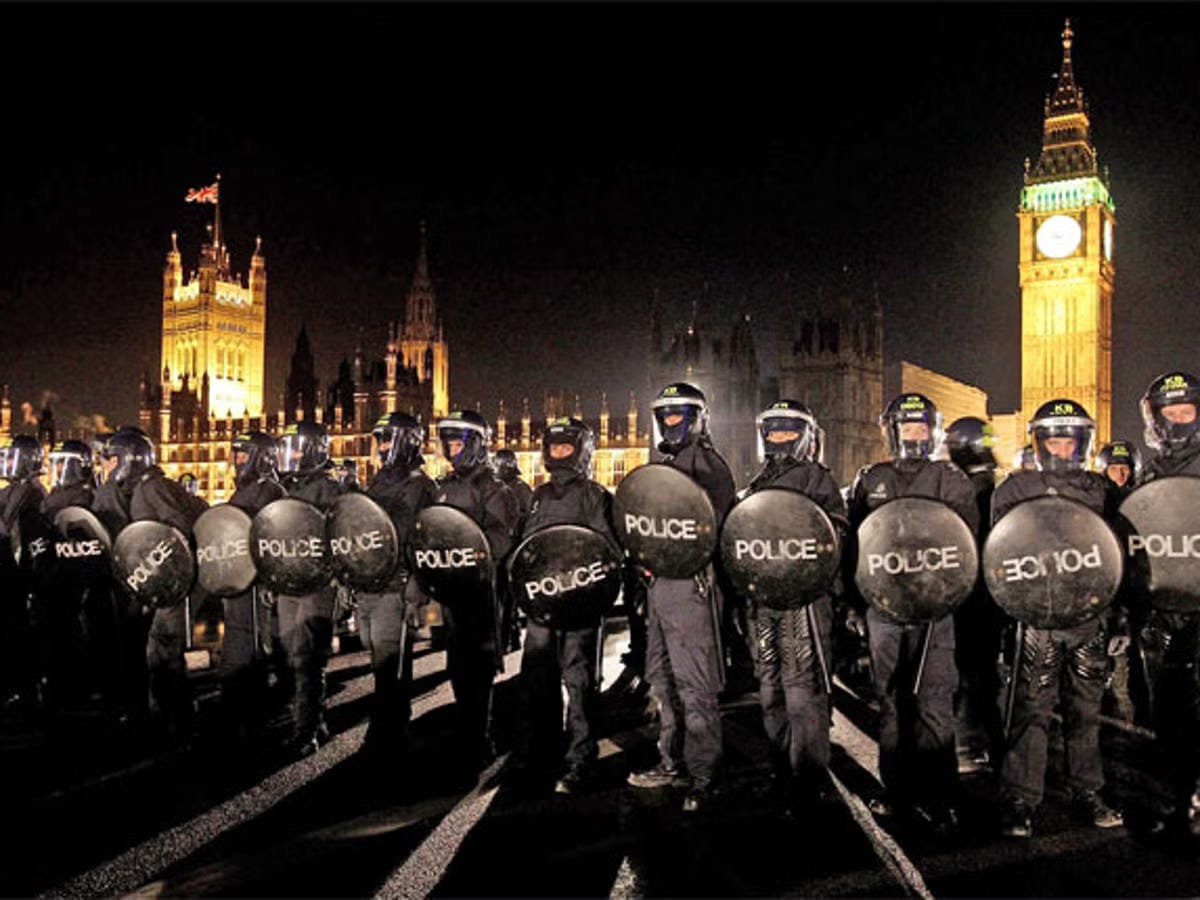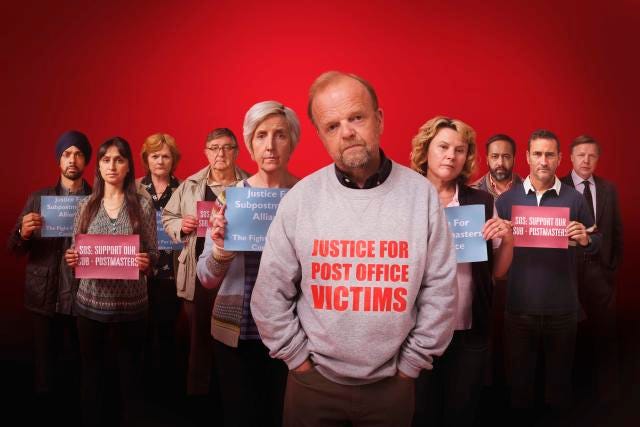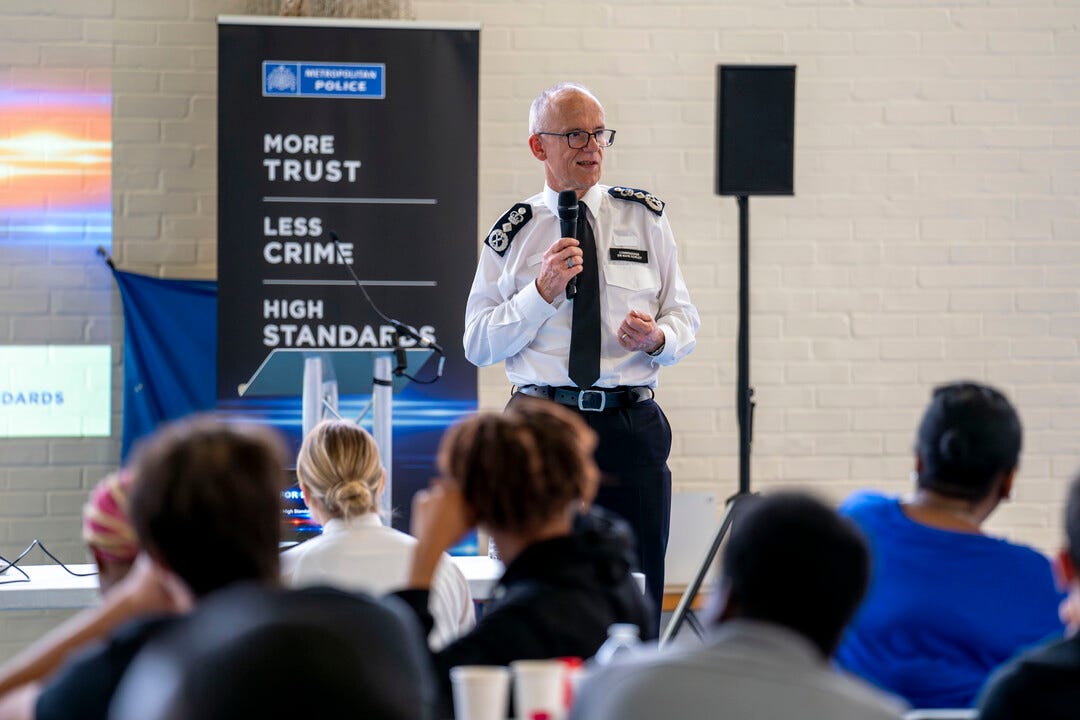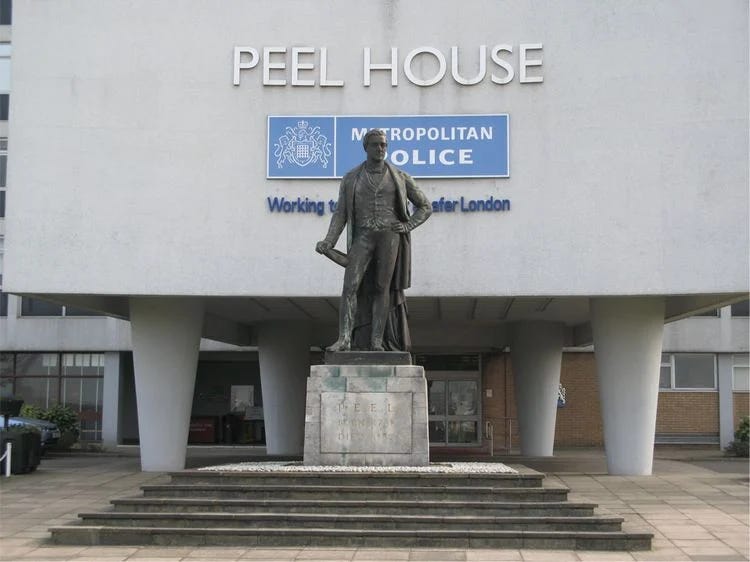A New Met?
Sir Mark Rowley has failed to speak Truth to Power
It’s not just Westminster and the Police; all of our institutions have been found wanting
This week, I decided to offer a view on the Met’s official response to the Casey Report. I discussed Casey here and agreed with many of her findings.
This report matters; the stakes for the Met are existential. If this organisational reboot fails, the very service itself might be dissolved. I’m sure Sir Mark Rowley doesn’t want to be remembered as the last Commissioner of the Metropolis.
And so the MPS published it’s response to Casey, ‘A New Met for London 2023-2025’, which I’ve now read several times. I made notes. I began drafting a point-by-point breakdown of what the Met proposes. I penned a workmanlike, point-by-point critique. Then, dear reader, I kinda gave up.
Why?
Because the Met’s response is lumpen and uninspiring. Lacking in ambition or passion. Larded with nostrums aimed at the elite’s ideological erogenous zones; the Met has submitted to the conceit it can cure societal ills it manifestly cannot (the ‘social work’ vision of policing, originally espoused by New Labour and Sir Iain Blair).
I could have predicted all of it.
Then, a cheeky Parthian Shot. As an afterword (Annexe A, p. 60), the report more or less says, “by the way, we can’t actually do this stuff unless you stump up an extra 878 million quid.”
That bit was quite funny, actually. Well, it was until the Mayor gave his extra dosh to his mates in the transport unions to avoid another Tube strike (£70 million he found down the back of the Mayoral sofa).
Now, I’m not normally given to state-of-the-nation polemics, but this is the terrain upon which the Met’s response must be considered. The interconnectedness of (what I shall call) Britain’s ‘Nexus of Crap’ struck me as especially relevant this week.
If you’re reading this in the UK, unless you’ve been living in a cave, you’ll be aware of the heartbreakingly awful Post Office / Horizon scandal. It’s a story where the British Establishment stuck up two fingers at a bunch of decent, hardworking people. It watched them go to prison for crimes of which they were completely innocent, while keeping their own snouts in the trough. They, quite simply, didn’t give a shit about an obvious and grievous problem happening under their noses.
It’s a story which makes me genuinely ashamed of my country.
The cast of ITV’s ‘Mr Bates Vs The Post Office’. We live in a country where scandals are ignored until they’re turned into TV dramas
What does this have to do with the Met? I think it points to a broader crisis in the body politic; the necessity for urgent, radical change to our institutions (Policing included). For many, it’s an inchoate sensation; the sort of atmosphere malign actors exploit (tip to mainstream politicians - I suspect dismissing such sentiments as ‘Populism’ isn’t going to work on this turn of the wheel).
Our government and institutions feel rotten and maggoty, borne of elite arrogance and complacency of the sort that would make Marie Antoinette blush. Our systems, processes and leaders espouse values and principles we all know are demonstrably false, which I’ve previously described using the Russian term ‘Vranyo’.
So, given the extinction-level event Casey poses, I hoped (naively) the MPS might offer something revolutionary. Something devilishly simple, even, confronting uncomfortable truths about the society our police are obliged to serve. A moment where the page could have turned.
Sir Mark Rowley, in my view, has failed. I think he sees himself as a good man in a storm, not a radical. Besides, no doubt words have been whispered in his ear at the most senior levels. And so, he’s signed off a steady-the-horses response, churned out by the usual College-of-Policing indoctrinated cohort of senior officers. Presumably a bunch of thrusting young Chief Superintendents were locked in an office at the top of the Empress State Building and given nothing but Kool-Aid to drink for six months.
The positives (to be fair, there are a few) are marooned in a word salad of management consultant gobbledygook, social justice and EDI platitudes. And, as I wrote here, this is before the Met enters its usual shark-tank re-organisation phase. Trust me, too many seniors in the Met won’t be viewing this as an urgent mission. Instead. they’ll see an opportunity for naked self-advancement.
Look on the plus side, though. I’m sure a shedload of medals and MBEs are on the way for crafting this opus. Keep an eye on the King’s Honours list in January 2025 and tell me I’m wrong.
The Last Commissioner of the Metropolis, or the Met’s saviour?
Rant almost over. And yes, I do feel better for it. Yet rants are like a sugar rush; satisfying but brief. So given the kicking I’ve just given the report, I suppose I should attempt to summarise some of it.
The straplines are More Trust, Less Crime, High Standards. You would have thought that was a fairly low bar for a police force, but then again Casey was brutal in her initial assessment of the Met. These are to be delivered via three thematic areas of reform;
Community Crime-Fighting (i.e. local, bread-and-butter policing, the eternally neglected Cinderella of the Met)
Culture Change (i.e. better reflecting the community - sound familiar? The old chestnut ‘policing by consent’ is wheeled out too. There’s no mention of how atomised London’s communities are, but that’s a bit uncomfortable I suppose; it’s easier to blame the Met than accept a city of nearly 9 million people, speaking 300 languages, might not all get along 24/7)
Fixing our Foundations (i.e. the personnel, training and recruitment apocalypse caused by over a decade of targeted austerity - of the three themes this one is most urgent)
Here’s a quote that caught my eye;
‘This plan is the product of more than 10,000 interactions with Londoners, our people, and partners from across the city. It represents what they’ve told us they want us to focus on.’
‘Interactions’. Hmmm. This needs to be discussed honestly, especially when trumpeted in reports like this. The old ‘talking to the punters’ canard, usually a disguise for sanctioning a pre-agreed agenda. I daresay many (but not all) of those who interacted with the Met, turning up to a council hall or library on a wet Tuesday evening in Croydon or Enfield or Haringey, were;
(1) activists of one flavour or another - local politicians, campaigners and so on
(2) self-appointed community leaders
(3) grievance mongers and malcontents
(4) the sort of people who enjoy public meetings on wet Tuesday evenings
(5) members of the public who turn up to the meeting, take a quick look at the above and leave
(6) members of the public who turn up to the meeting, decide to stick around and are drowned out by 1-3
(7) members of the public with a completely unrealistic idea of police responsibilities (they usually mix up the police role versus the local council’s)
I know complacency is terrible, but I refer you back to my comments on (a) the Met’s word salad report and (b) the Nexus of Crap; is it any wonder the average person can’t be bothered?
Dog shit, bin collections and cycling on pavements; the perennial results of most police / community consultations when residents are asked about their concerns. Sometimes, they’ll add ‘kids hanging about’
This isn’t an opinion I’ve invented for the sake of it; I’ve spent many hours talking to community officers about their role. Sometimes, given my old line of work, the officers concerned didn’t even know I was listening. And, as a young Pc, I too was hounded by my local resident’s group about the unholy trinity of dogshit, bins and cycling on pavements. They weren’t wildly interested in the spate of violent muggings plaguing the division. Why? None of them used the local tube station where most of the offences occurred.
The conclusion I drew from the experience is (a) the squeakiest wheel gets the most oil, and (b) Joe Public can be pretty myopic when it comes to crime.
This isn’t to say low-key antisocial behaviour isn’t important (of course it is), but the local authority / policing model developed since the 1990s has never really addressed who-does-what. The Tories, ideally, wanted uniformed, privatised street wardens employed by local councils to deliver this stuff. Then PCSOs were sent to fill the gap by New Labour. The police found ‘better’ things for them to do.
And, of course, try telling the average feral, inner-city youth to get off his or her electric bike or stop their Bully XL from shitting everywhere (which brings us back to use of force!). Policing by Consent. Ha ha ha. It’s much easier to prosecute the otherwise law-abiding for minor offences, right?
And so the cycle of disillusionment continues, as discretion-free technology replaces people. The public are increasingly taken for granted while piss-takers are put in the too difficult tray. This is how the social contract between the law-abiding public and the police rots.
Anyhow, although sceptical, I genuinely hope the Met’s new model for community crime-fighting works. Rather than re-invent the wheel, though, they could save a lot of time by simply reintroducing the perfectly workable Safer Neighbourhoods model of the mid-2000s. Then again, that wouldn’t look very proactive, so now there’ll be a new project / strategy instead.
And, as I’ll discuss later, all the planning in the world won’t work if you don’t have the right people to deliver it.
Then there’s the section on Culture Change, where the word salad gets extra helpings of quinoa, kale and gluten-free croutons;
‘Embedding the values of policing by consent’ (the elephant in the room being policing by consent has been dead in many places for over thirty years)
‘We’re going to refresh and embed new values to reset our culture and set out a positive vision for how we want everyone in the Met to act’ (let me translate that for you, kids - there’s another distance learning package heading your way. Sergeants will be expected to behave like commissars. Think North Korea run by David Brent).
‘We’re going to address our cultural challenges and deliver the inclusive, open, tolerant and diverse organisation that our people, and the public, expect to see’ (Answers on a postcard, but I’m sure hordes of EDI consultants are rubbing their hands together, as even more of the police budget is spent on bean-bagging sessions)
‘We'll more regularly review how we use force and stop and search’ (We’ve also been doing this for forty years and are no nearer coming to a conclusion, partly because many highly-politicised activists want the police defunded anyway)
‘We'll reform the command that investigates and hears cases for officers and staff who've breached standards, ensuring we're removing those who fail to meet the public's expectations’ (We still can’t wrap our heads around where HR and Professional Standards sit)
‘We'll reform armed policing’ (Baroness Casey thought it was too macho - despite UK police having one the lowest incidences of using lethal force in the world - so we’d better do something. Even if it leads to our shots handing their firearms tickets in)
There’s quite a lot about use of force in the report. This seems incongruous, given the Commissioner’s assurances to firearms officers last year about accountability. A senior police officer talking out of both sides of his mouth? Never!
It’s not all bad news. The Report’s most encouraging theme is the third, entitled ‘Fixing our foundations.’ This focuses on recruitment, training, leadership and retention.
It doesn’t take a genius to realise Policing’s overwhelmingly a people business. Get the people right and the rest of the stuff will look after itself. Still, given the arse-about-face nature of 21st Century policing, it’s encouraging the Met still grasps the fundamental importance of the issue.
One of the recurring themes of this Substack is that your lowest-ranking people, the ones doing the actual work, should be well-trained and led. They should be fairly treated, with decent pay and conditions. They should be supported by their leaders and communities. Which is all very well, but I refer you back to the Met’s Parthian shot - where’s the £878 million quid to fund this coming from?
I talk to serving officers, mainly constables and sergeants from forces across the UK. I can assure you, things are grim out there on the police coalface. Really grim. The standard of some new officers is genuinely appalling (it’s not as if the current offer on pay and conditions are tempting for promising candidates). Furthermore, officers feel the recent arses-on-seats recruitment uplift (along with officers hired via Zoom during the pandemic) has had an adverse impact on standards.
The result?
I predict a bitter harvest of professional standards cases coming down the track, as a cohort of unsuitable officers finish what used to be called their ‘probationary’ period and are confirmed as constables. And, soon, they’ll become sergeants and inspectors.
No wonder Sir Mark wants the system changed to make it easier to sack people.
Peel Centre - Hendon’s famous police college. Hated the place personally, but please bring it back
Interestingly, none of the three themes addresses the Met’s other ‘big ticket’ concerns, those Casey identified as robbing the frontline of resources. These include Serious Organised Crime, Security, Murder and Terrorism.
The report does acknowledge these areas, although surreptitiously bundles them in with local / community policing. This is wise, as all crime is interconnected. There’s also, interestingly, a focus on giving local police commanders more of a say over specialists operating in their areas. This, presumably, is because people don’t like it when a load of TSG officers or firearms people rock up and establish checkpoints or patrols.
This will be… interesting. When I worked in specialist policing we tried to tell local police stations as little as possible for operational security reasons. During my service, we viewed the average police station as leakier than a sieve, with the Met’s computerised ‘Briefing and Tasking System’) METBATS verging on open source for local criminals (mobile phone photos of METBATS slides were often seized at raids and referred to DPS). PCSOs, police staff, cleaners and contractors were as likely to be responsible as police officers.
Of course, some local police commanders are highly-capable and open to building positive relationships with specialist commands (and vice versa). Others are risk-averse, fly-by-night careerists. Which takes me back to the third theme of the report; people.
The local policing approach to serious organised crime outlined in the paper is called ‘Clear, Hold, Build.’ It sounds like something the army might try in Helmand Province, but anyhow:
‘Directed by local policing teams who work with the public and partners to understand and tackle gang-related and organised crime in their area. ‘Clear’ means targeted arrests and crime disruption, working with partners in the prison and probation service; 'Hold' means stabilising the area to stop criminals moving in to fill the void; and ‘Build’ means community-driven action to address the causes of criminality and prevent it from happening again.’
This riffs on the ‘public health’ approach to crime as trialled in Glasgow and held up as a panacea to tackling gang crime (although the approach relies on the sort of carrot and stick policing that might work in a more socially cohesive Scotland than a culturally and ethnically diffused city like London). You can read more about it here.
This approach, if it’s going to work, will also require a complete change of how the Met delivers specialised policing - which to my mind means increased devolution of capability to local command units. This is unlikely to happen, for both political and budgetary reasons. Instead, the Met says it will rely on ‘Pan London’ teams of specialist units who will be parachuted into areas as and when required.
There’s problem for Clear, Hold, Build, though - as there is for every other initiative proposed in the Met’s plan. There’s no money, or appetite for the reforms required for effective service delivery.
Nor is there money for the other partner agencies or public services. And, dare I say it, too many of those partner agencies have been seduced by critical theory to sympathise with anything other than the most softly-softly police approach.
Then there’s the courts and CPS - again underfunded and struggling to cope. Say you do - miraculously - manage to convict a criminal and they’re handed a custodial. What then? As one writer memorably put it this week, ‘a hot chocolate and a hand job’ is a typical sentence for too many offenders.
Which brings me back to the Nexus of Crap I described earlier. The Met’s plan is, as far as I can see, to put their engine in a car with no wheels, gears or steering. It’s Potemkin village stuff. An illusion.
What should the Met have done, then?
Rather than repeat myself, I invite you to take a look at some of my other writing on this platform. Choose a subject, and the chances are I’ve written about it. I’m not a strategist or a leader - just a former practitioner who saw how the sausage is made. And I still care enough to be angry. So I don’t have all the answers, but this is what I think:
Sir Mark Rowley should have told truth to power. He should have used his report to confront government with some uncomfortable truths. He should have said the Met needs to do less and do it better. He should have been prepared to confront the vested interests feeding off policing.
In short, in an ideal world, Sir Mark should have risked going out in a blaze of glory.
Instead, he’s chosen managed decline, the default position of the Nexus of Crap’s stewards. Oh well, there’s probably a seat in the Lords for the man, if the decline’s slow enough.
Maybe, when he writes his memoirs, he can tell us what he really thinks.






All this before you examine the really gritty stuff that is gamming up the system and making officers miserable. The current flowchart for an officer investigating a case goes something like this.
1. Conduct your investigation - don't forget that you need a DPA form countersigned by an Inspector to get information from any third party! (New policy circa 2023)
2. Arrest your suspect. Because there are so few stations, you end up at custody on the opposite side of London. Your card doesn't work and you have to get people to open doors for you.
3. Build your case using CONNECT, the MPS answer to a question nobody asked. Rebuild your case three times in one shift due to repeated crashing. Finally submit to CPS to be told that the system has not differentiated between exhibits and unused material. Oh, and the MG3 is unreadable because you accidentally included a pound sign in your fraud case, you dozy git.
4. CPS don't believe that the suspect can be remanded, so refuse to make an in custody charging decision (policy since 2020 and was meant to be a temporary summer contingency). Bail your suspect.
5. Now your suspect is bailed, DG6 comes along and gives you a wallop between the legs. You now need to prepare full unused schedules and redact all unused material and complete an Investigation Management Document setting out every line of enquiry you've pursued - before CPS will even look at it.
6. Finally submit your file. A PS who hasn't seen the inside of a courtroom in his life rejects the file because you have called the suspect a suspect, and he says this is prejudicial.
7. Submit your file and the PS approves it. CPS bounce it back because they say it's missing a key document. The file is not in fact missing that document.
8. Play file submission ping pong with the CPS for a few weeks, as each time you submit it, it takes a week or more for them to acknowledge it.
9. Finally the file doesn't get bounced. You now dont get a response for 6 months.
10. A reviewing lawyer sends the file back with a memo demanding a further statement from the victim confirming that, as so much time has passed since the incident, that they still want to go to court. The memo has a deadline set two weeks in the past. It automatically triggers an escalation to the BCU Commander who demands to know why you are behind on your memos.
11. Get a new statement from the victim who can't understand why it's needed. Apologise profusely. Resubmit your file.
12. Six months later, get a charging decision. Celebrate for a nanosecond. Send a postal charge to your defendant.
13. Draft and submit an MG5. The same PS from before bounces the file because you have referred to the defendant as the defendant.
14. Attend the first hearing. The defendant attends. The trial date is set for 2026.
15. Inform the victim of the trial date who says they no longer want to know. Summon every remaining inch of empathy to persuade them not to withdraw.
16. Trial date arrives. There is no defence barrister. Trial adjourned for another year.
17. The new trial date arrives. The courtroom roof is leaking effluence onto the dock. Trial moved to the following week.
18. New new trial date arrives and actually starts. The defendant is convicted. His barrister says his client has impregnated three women in the past year and it would be unfair to separate him from his children. Suspended sentence.
Fin.
I applaud you Dom for this line: 'He should have said the Met needs to do less and do it better.' No-one will agree to the MPS, let alone their own police beyond London, doing less. So, it is left to chiefs officers presenting to their PCC or Mayor, a "line by line" audit of functions or roles. WE both know none of the chiefs have the courage to do this, let alone a PCC agreeing.
Ironically now decades ago NYPD Chief Bill Bratton was able to rebuild NYPD because his predecessor unilaterally stopped gaming aka "numbers" enforcement - which handily was a state responsibility. Yes, there were other foundations built: more jail space, merging the three police departments (NYPD, Housing and Transit), more courts and prosecutors.
For quite some time ago, probably the mid-1980's - in the USA police reform was focused on the police ONLY doing enforcement as they were the only people with that responsibility, equipment, manpower and more.
Sadly the people who are really losing out are the public in the "hot spots" where gangs proliferate etc.